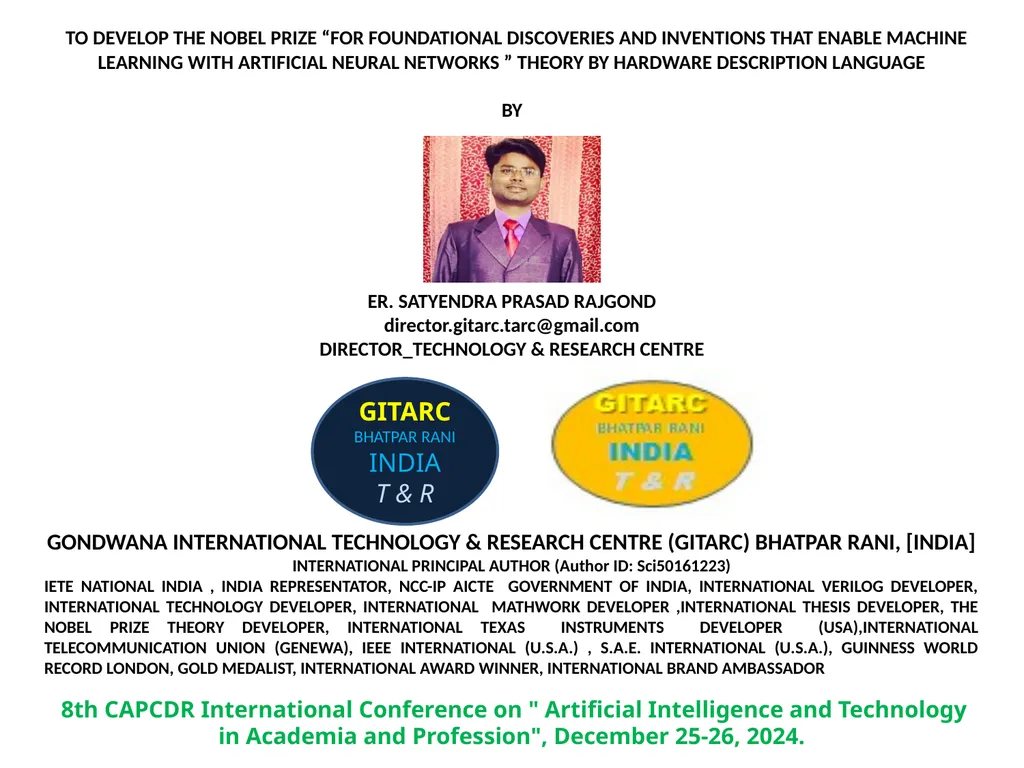
Author : stefany-barnette | Published Date : 2025-06-23
Description: TO DEVELOP THE NOBEL PRIZE FOR FOUNDATIONAL DISCOVERIES AND INVENTIONS THAT ENABLE MACHINE LEARNING WITH ARTIFICIAL NEURAL NETWORKS THEORY BY HARDWARE DESCRIPTION LANGUAGE BY ER. SATYENDRA PRASAD RAJGOND director.gitarc.tarcgmail.comDownload Presentation The PPT/PDF document "" is the property of its rightful owner. Permission is granted to download and print the materials on this website for personal, non-commercial use only, and to display it on your personal computer provided you do not modify the materials and that you retain all copyright notices contained in the materials. By downloading content from our website, you accept the terms of this agreement.
Here is the link to download the presentation.
"TO DEVELOP THE NOBEL PRIZE “FOR FOUNDATIONAL"The content belongs to its owner. You may download and print it for personal use, without modification, and keep all copyright notices. By downloading, you agree to these terms.













